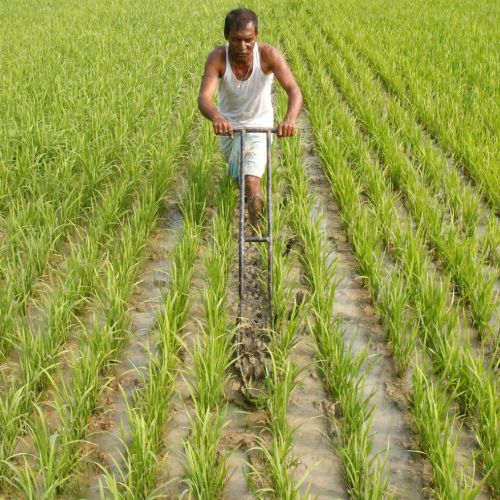Ahmedabad (Gujarat) [India], October 14 (ANI): Gujarat, once central to India’s White Revolution, is now spearheading a new era of sustainable agriculture through high-value crops, modern irrigation systems, and farmer empowerment.
Known as India’s “Growth Engine,” the state’s agriculture and allied sectors have grown at an impressive 9.7 per cent annually, surpassing the national average of 5.7 per cent.
Gujarat is reaping the benefits of two decades of pro-farming policies that have transformed the state into a diversified, market-driven agricultural economy.
Under the leadership of Prime Minister Narendra Modi and Chief Minister Bhupendra Patel, initiatives such as the Soil Health Cards and the Jyotigram Scheme continue to promote sustainable practices and expand irrigation.
During his visit to Gujarat last year, Prime Minister Modi stated, “In our North Gujarat, every district has started using drip irrigation, micro-irrigation, and new techniques, resulting in improved possibilities for various crops for North Gujarat farmers. Today, almost 70 per cent of Banaskantha has adopted micro-irrigation. The benefits of such irrigation and new technology are also reaching the drought-prone areas of Gujarat.”
As Gujarat’s Chief Minister, Narendra Modi launched the Krushi Mahotsav, an annual event connecting farmers with modern techniques and expert advice, boosting productivity and promoting sustainability. Since 2001, Gujarat’s farmers have shifted towards horticulture, with crop area increasing by 181 per cent and production by 326 per cent.
By 2022, the state’s fruit production reached 82.91 lakh MT across 4.48 lakh hectares, with major crops including mango, banana, citrus, pomegranate, and sapota.
Gujarat is also a leading producer of spices like cumin, fennel, coriander, and chilli, covering 6.57 lakh hectares with an output of 12.01 lakh MT.
It is among the first states to implement the Model APMC Act, enabling farmers to sell their produce outside regulated markets.
The government promotes high-value crops like dates and dragon fruit (Kamalam) through subsidies and market support, improving farmers’ livelihoods and fostering sustainable, profitable agriculture.
Vinodbhai Ahir, a farmer in Rajkot, said, “There are government drip irrigation schemes, with farmers receiving 30-40 per cent subsidies. The farmers are benefiting from the schemes launched by the Modi government. Small farmers also receive 6,000 rupees annually, in instalments of 2,000 rupees each. We are getting that as well.”
The Gujarat government is also encouraging farmers to adopt natural farming techniques that reduce chemical use, improve soil health, and boost biodiversity.
It promotes traditional crops like millet, which are well-suited to these methods, with the Dang district designated as a hub for natural farming.
CM Patel said, “To promote natural farming in the state, the government is fully committed. Fortunately, our state is blessed to have a Governor who is an expert in natural agriculture. He has intensified this campaign, providing training in natural farming to over 18 lakh farmers in the state, with more than 8.5 lakh farmers adopting natural practices.”
Gujarat is also a dairy powerhouse, with over 10,000 milk cooperatives producing around 150 lakh litres daily.
Encouraged by the proactive approach of the government, many farmers in Gujarat have adopted modern farming techniques that combine crop cultivation and livestock raising, allowing them to diversify their income sources.
Schemes like the Jyotigram Scheme, which provides 24-hour electricity for irrigation, along with drip irrigation techniques in arid regions like Kutch and Saurashtra, have transformed barren land into productive fields.
Gopal Bhai Sutariya, a Progressive Farmer and Agri Expert, said, “In Kutch, where we couldn’t even imagine it, pomegranates are now grown. Dates are being cultivated, and many farmers are involved in this. They are growing multiple crops. This is a significant change in Gujarat.”
Under CM Patel, the Gujarat government is further enhancing farmers’ welfare by digitizing land records, significantly improving the “Ease of Doing Business.”
By championing modern techniques and empowering farmers, Gujarat sets a powerful example for the rest of India.
This forward-thinking approach not only boosts productivity but also promotes environmental stewardship, positioning Gujarat as a leader in the agricultural landscape. (ANI)












